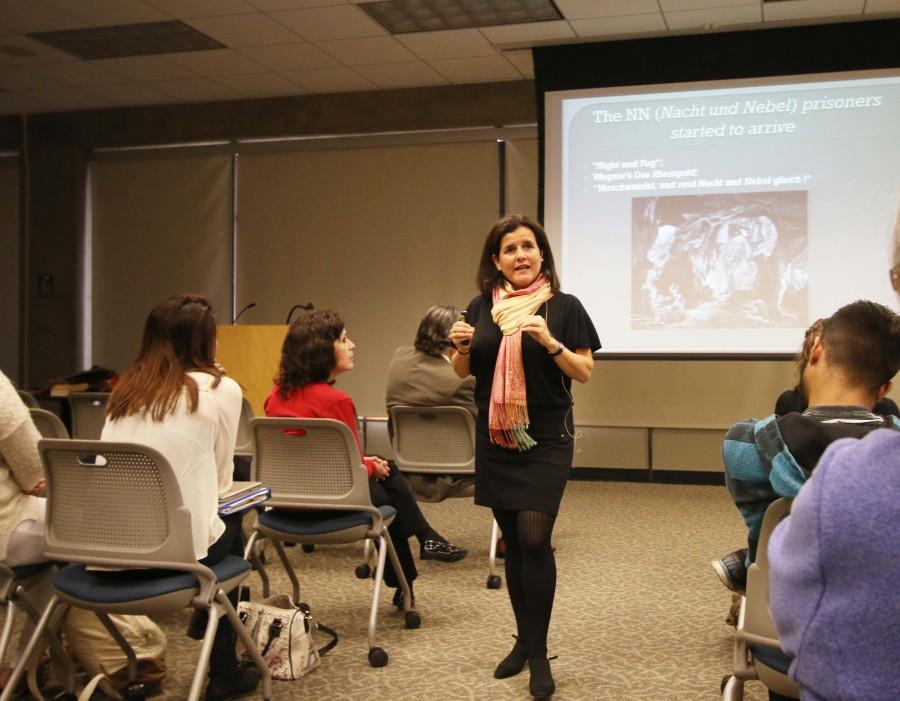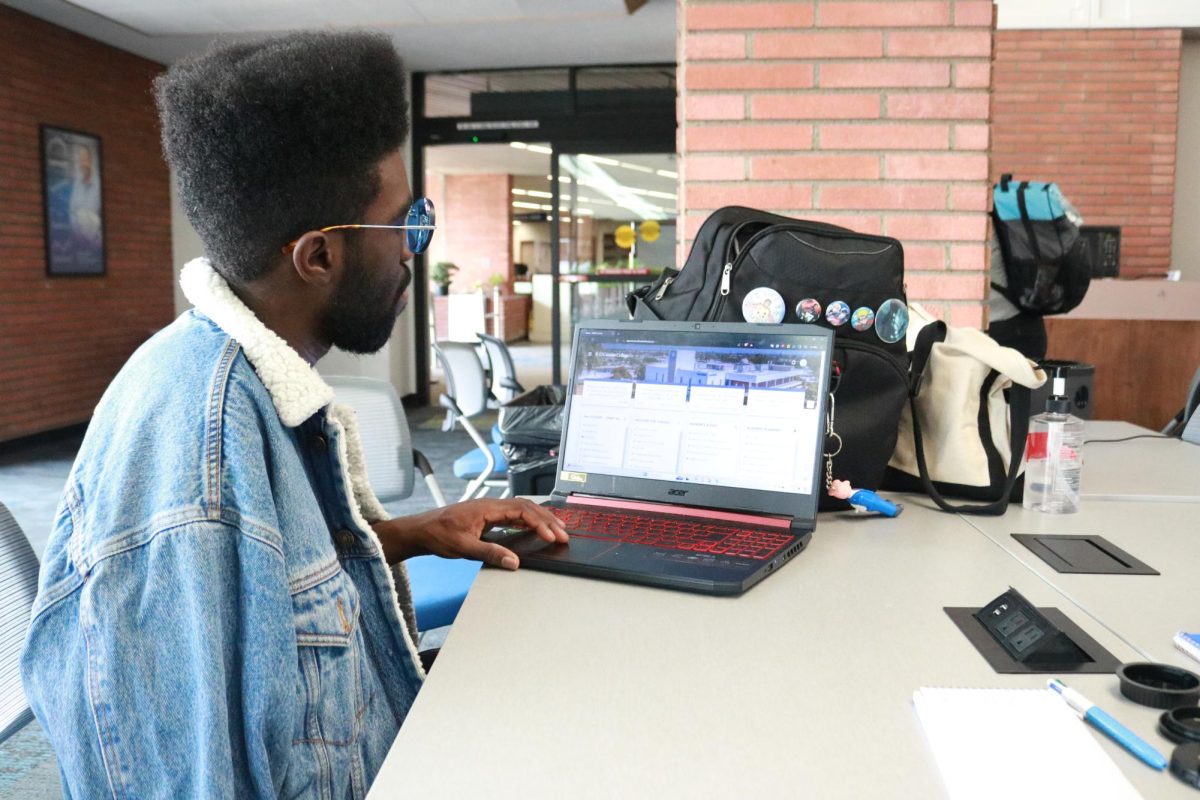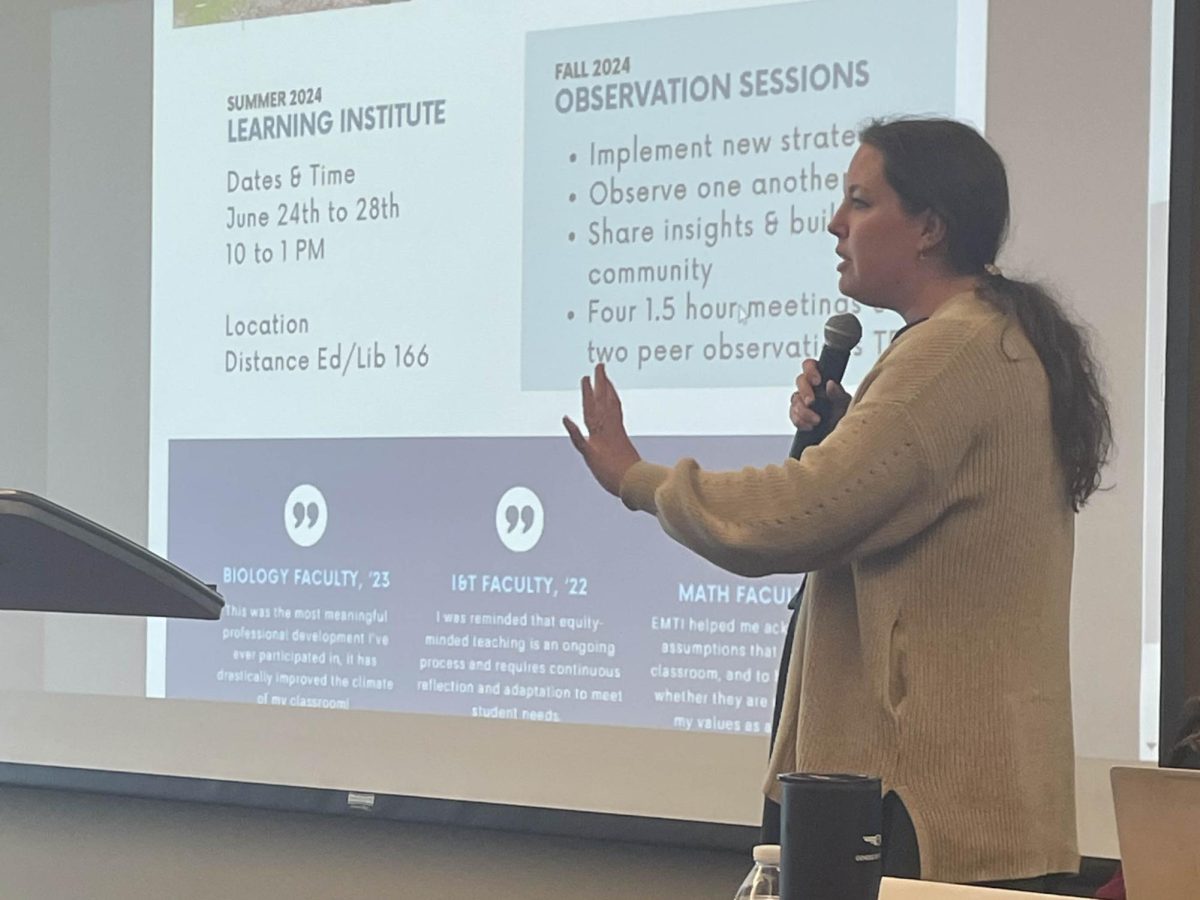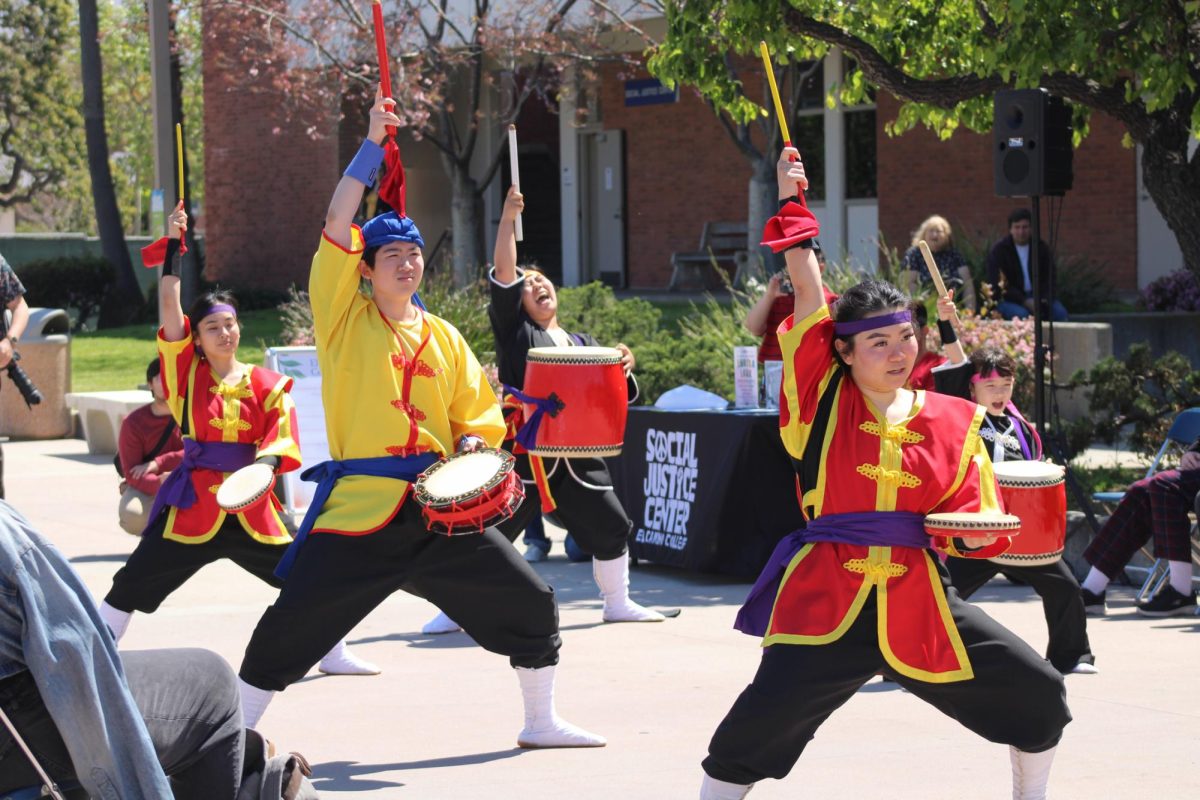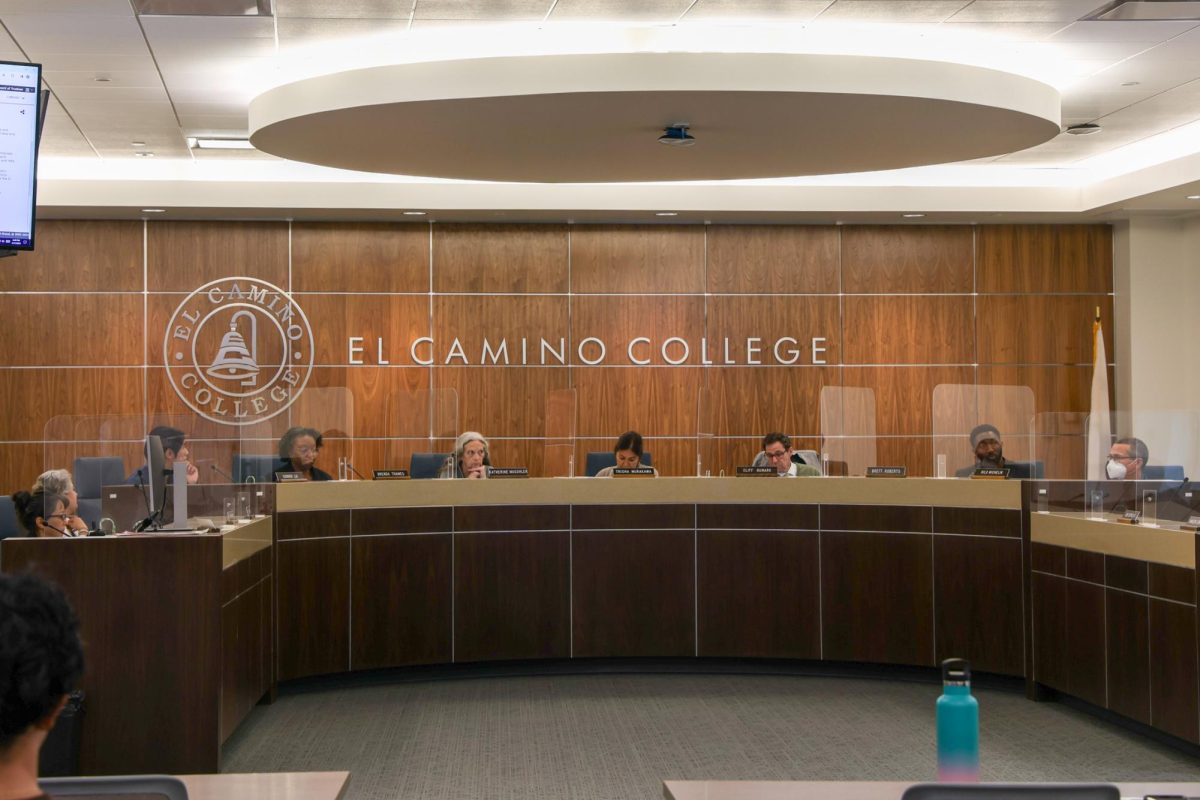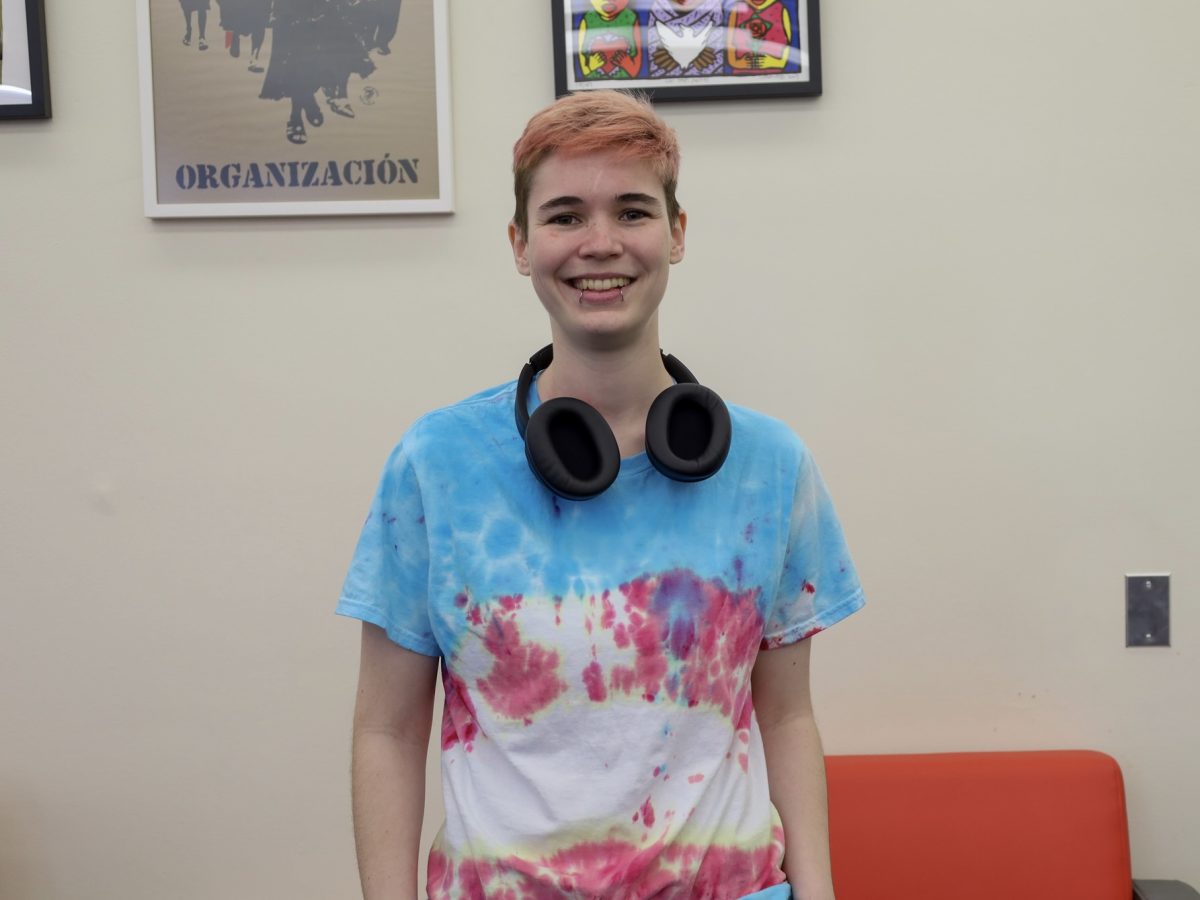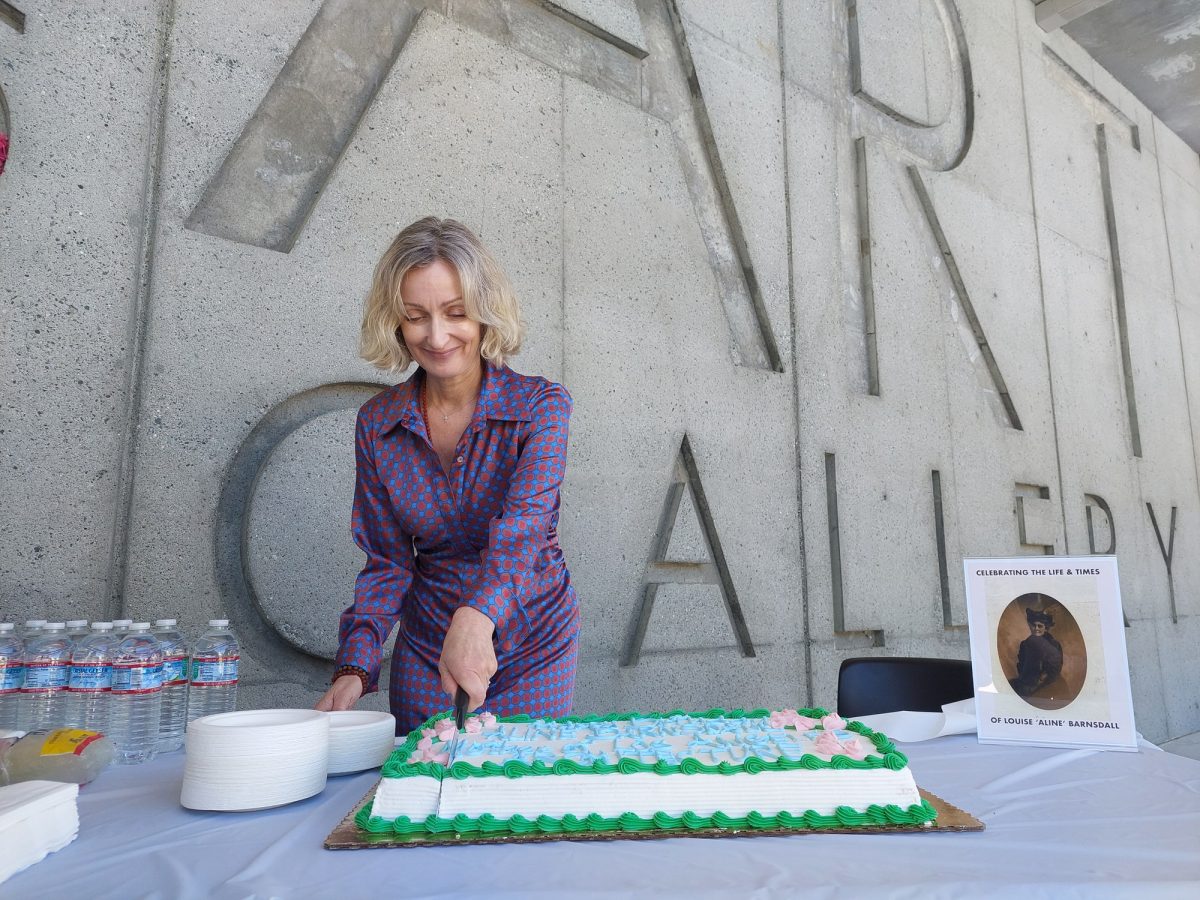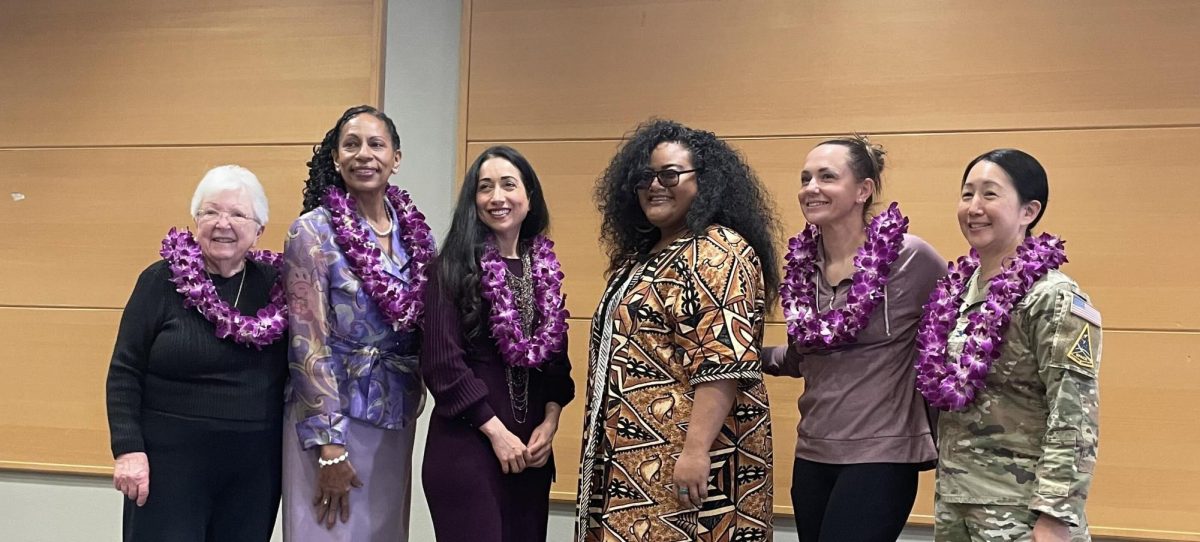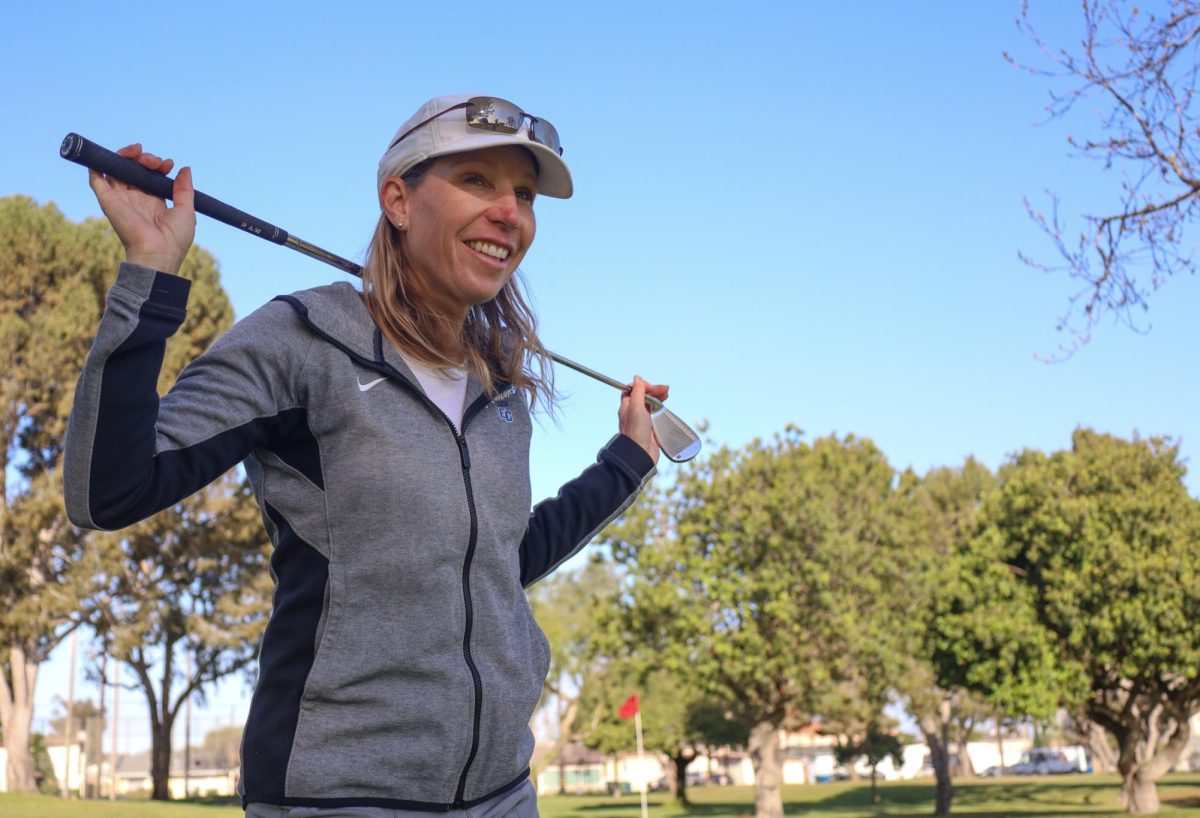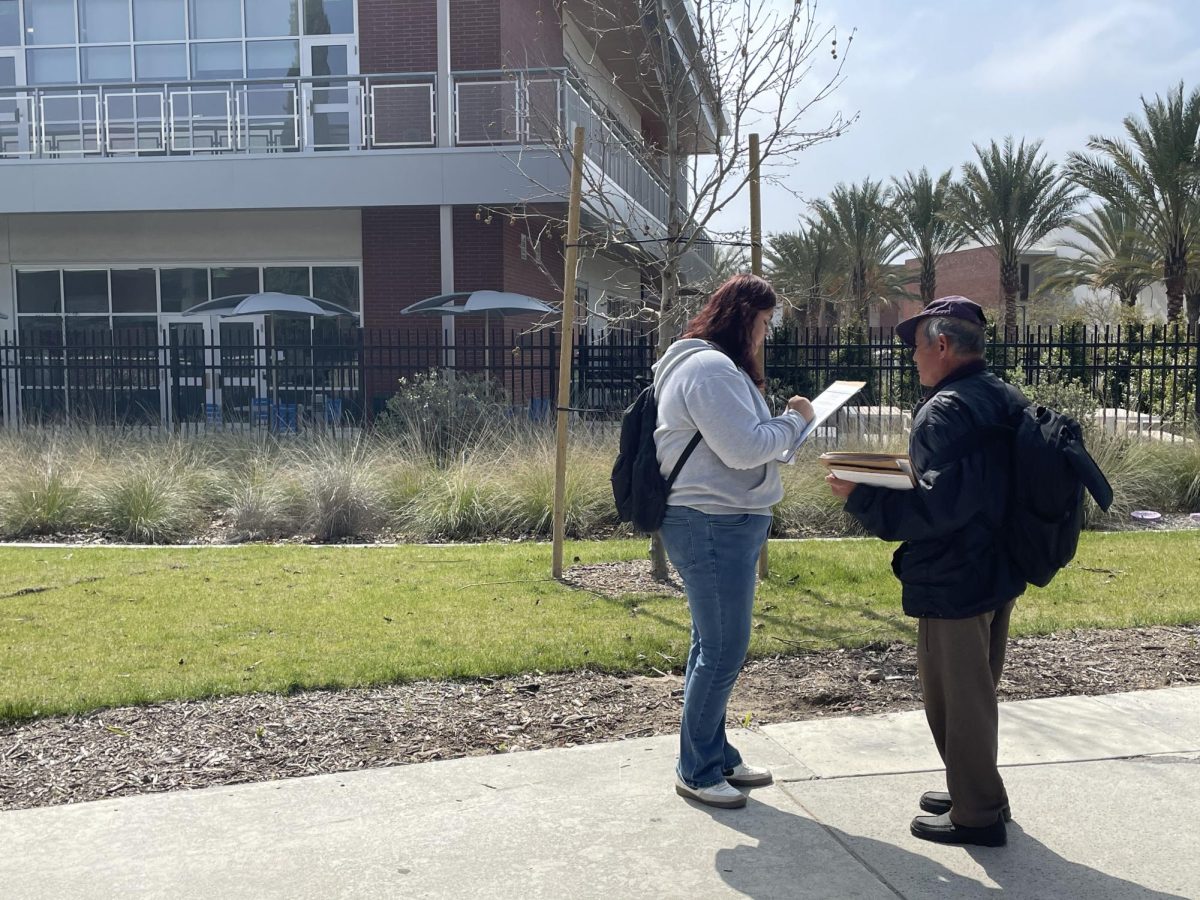A room filled with staff and faculty, along with students, who were mostly there for extra credit, and a white haired older gentleman with a smaller Spanish woman next to him.
Spanish professor, Silvia Ribelles de la Vega, organized a conference in the Alondra Room about the occasion. Consul General of Spain at Los Angeles, Javier Vallaure de Acha was in attendance to give a brief introduction speech.
Tuesday marked the 70th anniversary of the last Nazi concentration camp to be liberated, camp KL Mauthausen, located in Austria.
During WWII, camp Mauthausen was a slave labor camp where most prisoners were executed, Ribelles said.
According to HistoryNewsNetwork.org, 23,400 Spaniards were shipped in box cars to Mauthausen; 16,310 died and 9,200 survived the ordeal of slavery.
Ribelles de la Vega spoke to students and faculty about the rough and deadly living conditions at Mauthausen and explained how the camp was liberated.
“Germany began losing steam in 1943,” Ribelles said. “The SS Officers abandoned the camp on the night of the 2nd to the 3rd of May. Command of the camp was given to the Vienna Firefighters.”
Ribelles said that on May 5, 1945 the U.S 11th Armored Division, led by Staff Sgt. Albert J. Kosiek found Mauthausen when searching for American soldiers. Upon arriving at the camp they were met with loud cheers by prisoners.
May 6, 1945, the day after the official liberation of Mauthausen, General Dwight D. Eisenhower requested a reenactment for photographers, Ribelles said.
She then showed a picture of an American tank rolling under the main gate of the camp where a banner read, “The Antifascist Spaniards Welcome the Liberating Forces.”
Vallaure de Acha said any kind of banishment or exile is a frontal attack on something very important to humans; freedom.
There’s a sense of pride because the Spaniards took part in so many feats that helped, Ribelles added.
“The actual liberation was huge,” Ribelles said.
Ribelles said it’s important that we become aware of the terrible things that happened and what these people went through.
“The liberation was the end of their suffering and beginning of life for them,” Ribelles said. “Not just for these prisoners but prisoners in all concentration camps.”



